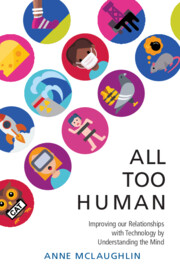Book contents
- All Too Human
- All Too Human
- Copyright page
- Contents
- Figures
- Tables
- Preface
- Acknowledgments
- Introduction
- 1 “Brace for Impact”
- 2 Bad Water
- 3 Hybrid Vigor
- 4 A Mind Divided
- 5 All the Light We Cannot See
- 6 Mistakes
- 7 History Repeating?
- 8 Needles in Haystacks
- 9 Apt Pupils and Alien Invaders
- 10 A Relative to Truth
- 11 Old Principles for New Worlds
- Conclusion
- Notes
- References
- Index
2 - Bad Water
Published online by Cambridge University Press: 27 January 2022
- All Too Human
- All Too Human
- Copyright page
- Contents
- Figures
- Tables
- Preface
- Acknowledgments
- Introduction
- 1 “Brace for Impact”
- 2 Bad Water
- 3 Hybrid Vigor
- 4 A Mind Divided
- 5 All the Light We Cannot See
- 6 Mistakes
- 7 History Repeating?
- 8 Needles in Haystacks
- 9 Apt Pupils and Alien Invaders
- 10 A Relative to Truth
- 11 Old Principles for New Worlds
- Conclusion
- Notes
- References
- Index
Summary
There are systems in place, or should be, for our government officials to make the decisions that affect our health. But as the Flint water crisis and our decision to go to war in Iraq in 2003 demonstrate, the rules for these systems are lacking. Officials and CIA Analysts fall prey to their unconscious biases just as readily as anyone. The Flint water crisis is described with all evidence in place that confirmation bias (and racial bias) drove the decision not to stop the public from drinking the water, using snippets from actual emails at the governor’s office to illustrate. The same failings led to war in Iraq, though the CIA has since created processes to prevent their analysts from making the same errors again. The chapter ends with a light-hearted example of a decision-making tool the CIA developed in the aftermath of the Iraq invasion: the Analysis of Competing Hypotheses. I use the tool to determine if my dog made a mess on the floor - a more everyday example of decision-making than airplane crashes, war, or public health (graphic to illustrate). This brings it home that bias can be avoided; it only takes effort.
- Type
- Chapter
- Information
- All Too HumanUnderstanding and Improving our Relationships with Technology, pp. 17 - 28Publisher: Cambridge University PressPrint publication year: 2022



